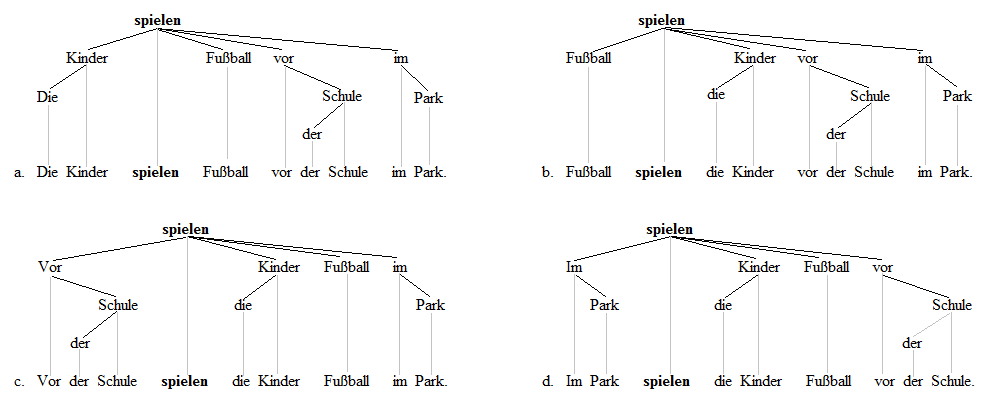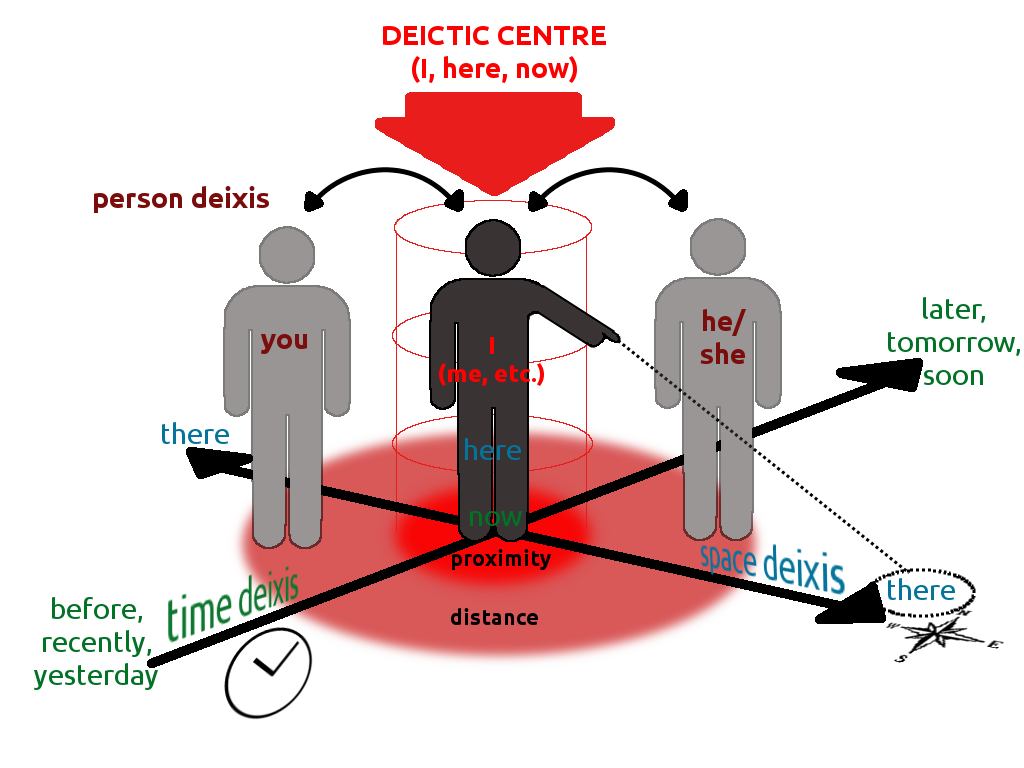|
Bettelou Los
Bettelou Los is a linguist and philologist specializing in the history of the English language. Since 2013 she has held the Forbes Chair of English Language at the University of Edinburgh. Academic career Los received her MA from the University of Amsterdam in 1986. After spending some time working as a translator, she obtained her PhD in 2000 from the Vrije Universiteit Amsterdam; her dissertation focused on infinitives in Old and Middle English. From 2004 she held positions as lecturer first at the Vrije Universiteit and then at Radboud University Nijmegen, where she was promoted to senior lecturer in 2008, before moving to Edinburgh in 2013. Research Los is known for her work on language change in the history of English and other early Germanic languages, particularly in the domain of syntax. Information structure and its interaction with syntactic change has played an important role in her more recent work. Her book on the rise of the ''to''-infinitive in English is the standar ... [...More Info...] [...Related Items...] OR: [Wikipedia] [Google] [Baidu] |
Linguistics
Linguistics is the scientific study of human language. It is called a scientific study because it entails a comprehensive, systematic, objective, and precise analysis of all aspects of language, particularly its nature and structure. Linguistics is concerned with both the cognitive and social aspects of language. It is considered a scientific field as well as an academic discipline; it has been classified as a social science, natural science, cognitive science,Thagard, PaulCognitive Science, The Stanford Encyclopedia of Philosophy (Fall 2008 Edition), Edward N. Zalta (ed.). or part of the humanities. Traditional areas of linguistic analysis correspond to phenomena found in human linguistic systems, such as syntax (rules governing the structure of sentences); semantics (meaning); morphology (structure of words); phonetics (speech sounds and equivalent gestures in sign languages); phonology (the abstract sound system of a particular language); and pragmatics (how social con ... [...More Info...] [...Related Items...] OR: [Wikipedia] [Google] [Baidu] |
Grammatical Particle
In grammar, the term ''particle'' (abbreviated ) has a traditional meaning, as a part of speech that cannot be inflected, and a modern meaning, as a function word associated with another word or phrase, generally in order to impart meaning. Although a particle may have an intrinsic meaning, and indeed may fit into other grammatical categories, the fundamental idea of the particle is to add context to the sentence, expressing a mood or indicating a specific action. In English, for instance, the phrase "oh well" has no purpose in speech other than to convey a mood. The word 'up' would be a particle in the phrase to 'look up' (as in the phrase ''"''look up this topic''"''), implying that one researches something, rather than literally gazing skywards. Many languages use particles, in varying amounts and for varying reasons. In Hindi, for instance, they may be used as honorifics, or to indicate emphasis or negation. In some languages they are more clearly defined, such as Chinese, whic ... [...More Info...] [...Related Items...] OR: [Wikipedia] [Google] [Baidu] |
University Of Amsterdam Alumni
A university () is an institution of higher (or tertiary) education and research which awards academic degrees in several academic disciplines. Universities typically offer both undergraduate and postgraduate programs. In the United States, the designation is reserved for colleges that have a graduate school. The word ''university'' is derived from the Latin ''universitas magistrorum et scholarium'', which roughly means "community of teachers and scholars". The first universities were created in Europe by Catholic Church monks. The University of Bologna (''Università di Bologna''), founded in 1088, is the first university in the sense of: *Being a high degree-awarding institute. *Having independence from the ecclesiastic schools, although conducted by both clergy and non-clergy. *Using the word ''universitas'' (which was coined at its foundation). *Issuing secular and non-secular degrees: grammar, rhetoric, logic, theology, canon law, notarial law.Hunt Janin: "The university ... [...More Info...] [...Related Items...] OR: [Wikipedia] [Google] [Baidu] |
Academics Of The University Of Edinburgh
An academy (Attic Greek: Ἀκαδήμεια; Koine Greek Ἀκαδημία) is an institution of secondary or tertiary higher learning (and generally also research or honorary membership). The name traces back to Plato's school of philosophy, founded approximately 385 BC at Akademia, a sanctuary of Athena, the goddess of wisdom and skill, north of Athens, Greece. Etymology The word comes from the ''Academy'' in ancient Greece, which derives from the Athenian hero, ''Akademos''. Outside the city walls of Athens, the gymnasium was made famous by Plato as a center of learning. The sacred space, dedicated to the goddess of wisdom, Athena, had formerly been an olive grove, hence the expression "the groves of Academe". In these gardens, the philosopher Plato conversed with followers. Plato developed his sessions into a method of teaching philosophy and in 387 BC, established what is known today as the Old Academy. By extension, ''academia'' has come to mean the accumulation, d ... [...More Info...] [...Related Items...] OR: [Wikipedia] [Google] [Baidu] |
Historical Linguists Of English
History (derived ) is the systematic study and the documentation of the human activity. The time period of event before the invention of writing systems is considered prehistory. "History" is an umbrella term comprising past events as well as the memory, discovery, collection, organization, presentation, and interpretation of these events. Historians seek knowledge of the past using historical sources such as written documents, oral accounts, art and material artifacts, and ecological markers. History is not complete and still has debatable mysteries. History is also an academic discipline which uses narrative to describe, examine, question, and analyze past events, and investigate their patterns of cause and effect. Historians often debate which narrative best explains an event, as well as the significance of different causes and effects. Historians also debate the nature of history as an end in itself, as well as its usefulness to give perspective on the problems of the p ... [...More Info...] [...Related Items...] OR: [Wikipedia] [Google] [Baidu] |
Corpus Linguists
Corpus is Latin language, Latin for "body". It may refer to: Linguistics * Text corpus, in linguistics, a large and structured set of texts * Speech corpus, in linguistics, a large set of speech audio files * Corpus linguistics, a branch of linguistics Music * Corpus (album), ''Corpus'' (album), by Sebastian Santa Maria * Corpus Delicti (band), also known simply as Corpus Medicine * Corpus callosum, a structure in the brain * Corpus cavernosum (other), a pair of structures in human genitals * Corpus luteum, a temporary endocrine structure in mammals * Corpus gastricum, the Latin term referring to the body of the stomach * Corpus alienum, a foreign object originating outside the body * Corpus albicans * Corpora amylacea * Corpora arenacea Other uses * Corpus (Bernini), ''Corpus'' (Bernini), a 1650 sculpture of Christ by Gian Lorenzo Bernini * Corpus (museum), a human body themed museum in the Netherlands * Corpus Clock, a large sculptural clock * Corpus (dance troupe), a ... [...More Info...] [...Related Items...] OR: [Wikipedia] [Google] [Baidu] |
Grammarians From The Netherlands
Grammarian may refer to: * Alexandrine grammarians, philologists and textual scholars in Hellenistic Alexandria in the 3rd and 2nd centuries BCE * Biblical grammarians, scholars who study the Bible and the Hebrew language * Grammarian (Greco-Roman), a teacher in the second stage in the traditional education system * Linguist, a scientist who studies language * Philologist, a scholar of literary criticism, history, and language * Sanskrit grammarian, scholars who studied the grammar of Sanskrit * Speculative grammarians or Modistae, a 13th and 14th century school of philosophy * Grammarians of Basra, scholars of Arabic * Grammarians of Kufa, scholars of Arabic See also * Grammar, the structural rules that govern natural languages * ''Grammaticus'', a name used by several scholars * Neogrammarian The Neogrammarians (German: ''Junggrammatiker'', 'young grammarians') were a German school of linguists, originally at the University of Leipzig, in the late 19th century who proposed the ... [...More Info...] [...Related Items...] OR: [Wikipedia] [Google] [Baidu] |
Living People
Related categories * :Year of birth missing (living people) / :Year of birth unknown * :Date of birth missing (living people) / :Date of birth unknown * :Place of birth missing (living people) / :Place of birth unknown * :Year of death missing / :Year of death unknown * :Date of death missing / :Date of death unknown * :Place of death missing / :Place of death unknown * :Missing middle or first names See also * :Dead people * :Template:L, which generates this category or death years, and birth year and sort keys. : {{DEFAULTSORT:Living people 21st-century people People by status ... [...More Info...] [...Related Items...] OR: [Wikipedia] [Google] [Baidu] |
Ans Van Kemenade
Ans van Kemenade (born 1954 in Eindhoven) is a Dutch professor of English linguistics at the Radboud University Nijmegen specializing in the history of the English language. Biography Van Kemenade studied English and linguistics at Utrecht University, and received her doctorate there in 1987 with a thesis titled ''Syntactic Case and Morphological Case in the History of English''. Following positions at Leiden University and the Vrije Universiteit Amsterdam she was appointed professor and chair of English linguistics at the Radboud University Nijmegen in 1999. Van Kemenade has been the recipient of numerous awards and honours. In 2015 she was appointed as a member of the Permanent Committee for Large Scale Research Infrastructures advising the Dutch Research Council. In 2017 she was the recipient of a festschrift, Word Order Change in Acquisition and Language Contact, edited by Bettelou Los and Pieter de Haan. She was elected as a member of the Academia Europaea in 2018. In 2020 sh ... [...More Info...] [...Related Items...] OR: [Wikipedia] [Google] [Baidu] |
Verb-second
In syntax, verb-second (V2) word order is a sentence structure in which the finite verb of a sentence or a clause is placed in the clause's second position, so that the verb is preceded by a single word or group of words (a single constituent). Examples of V2 in English include (brackets indicating a single constituent): * "Neither do I", " ever in my lifehave I seen such things" If English used V2 in all situations, the following would be correct: * " * n schoollearned I about animals", " * hen she comes home from worktakes she a nap" V2 word order is common in the Germanic languages and is also found in Northeast Caucasian Ingush, Uto-Aztecan O'odham, and fragmentarily in Romance Sursilvan (a Rhaeto-Romansh variety) and Finno-Ugric Estonian. Of the Germanic family, English is exceptional in having predominantly SVO order instead of V2, although there are vestiges of the V2 phenomenon. Most Germanic languages do not normally use V2 order in embedded clauses, with a few ex ... [...More Info...] [...Related Items...] OR: [Wikipedia] [Google] [Baidu] |
Deixis
In linguistics, deixis (, ) is the use of general words and phrases to refer to a specific time, place, or person in context, e.g., the words ''tomorrow'', ''there'', and ''they''. Words are deictic if their semantic meaning is fixed but their denoted meaning varies depending on time and/or place. Words or phrases that require contextual information to be fully understood—for example, English pronouns—are deictic. Deixis is closely related to anaphora. Although this article deals primarily with deixis in spoken language, the concept is sometimes applied to written language, gestures, and communication media as well. In linguistic anthropology, deixis is treated as a particular subclass of the more general semiotic phenomenon of indexicality, a sign "pointing to" some aspect of its context of occurrence. Although this article draws examples primarily from English, deixis is believed to be a feature (to some degree) of all natural languages.Lyons, John (1977) "Deixis, space an ... [...More Info...] [...Related Items...] OR: [Wikipedia] [Google] [Baidu] |

.jpg)

